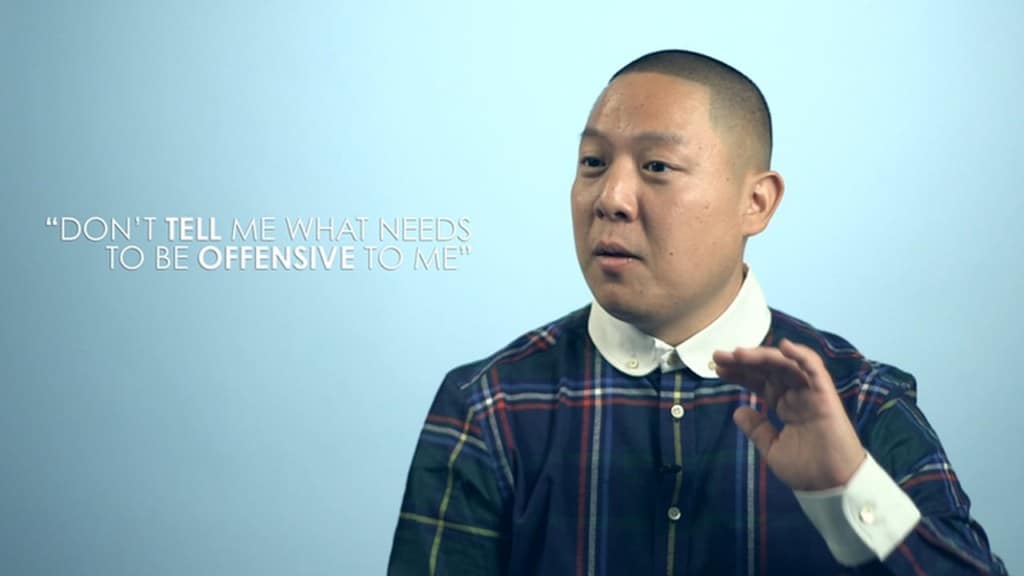
To us, the most interesting part of Double Cup Love is that most of the China-based action is centered in Chengdu. Eddie hangs out around Kehua Bei Lu, stays at Hakka Homes, and is underwhelmed by Raffles City though seems impressed to find a Din Tai Fung there. Huang and his brothers also hang out at Noah’s Ark for massages, where he chats with the massage girl, we can imagine in the strongly accented Chinese that he uses on his show, learning about how the lives of the lao bai xing differ so from his own and reflecting what his life would have been if his parents hadn’t brought the family to America when they did.
Huang has a recognizably difficult time finding good Chinese food in Chengdu; like many Western travellers, he seems to expect to find fantastic Sichuan food in every corner of the city. He is also surprised to find that nobody eats dan dan mian anymore, but he does enjoy some barbecued rabbit. The Chengdu culinary highlights of the book are the night he and his brothers cook for a large group of locals and when he later manages to find some Shanghai style boiled crayfish sold on the street. Huang’s Chinese food palate has been solidly grounded in northern and eastern locales, with his favorite food being hong shao rou, so it’s not surprising he found restaurants much more to his taste in Shanghai.
The book’s climax is a proposal scene near the big Buddha in Leshan, which we never thought of as a romantic backdrop before. The relationship parts of the story feel the most foreign, since Huang’s schtick is all about the immigrant and multicultural experience. However, as soon as the perspective of the reader moves outside America, Huang seems a whole lot more American than anything else and if that perspective moves all the way to China, his American-ness approaches a hundred percent. Thus, the ambivalence he feels with a cross cultural relationship, when it is between people who still basically grew up in the same country, seems a little affected. The conclusion of the book hints that the relationship at the centre of the story is not all smooth sailing down the road. The most relatable and entertaining family drama in the book are when the parents, brothers, and bro’s enter the scene.


